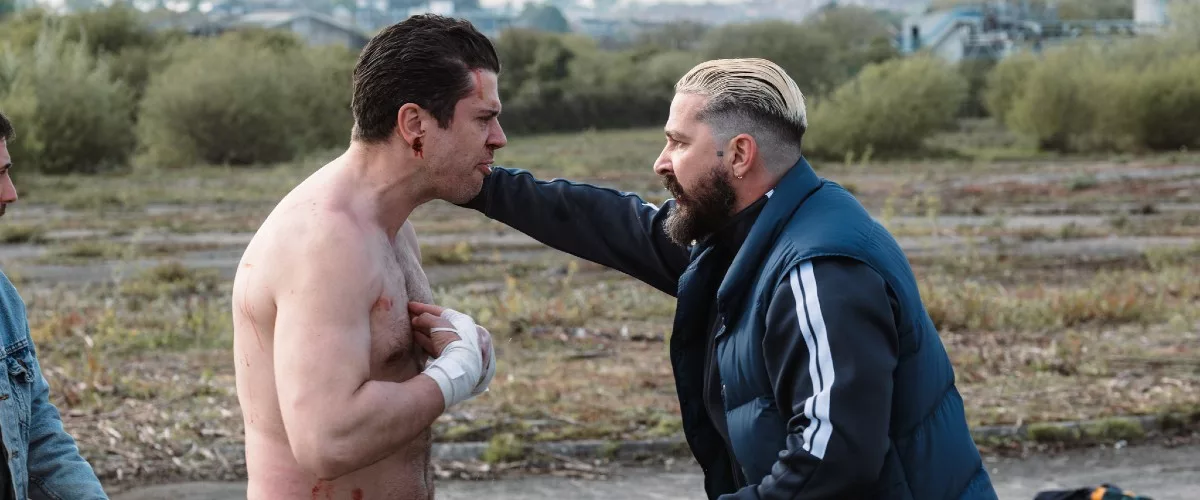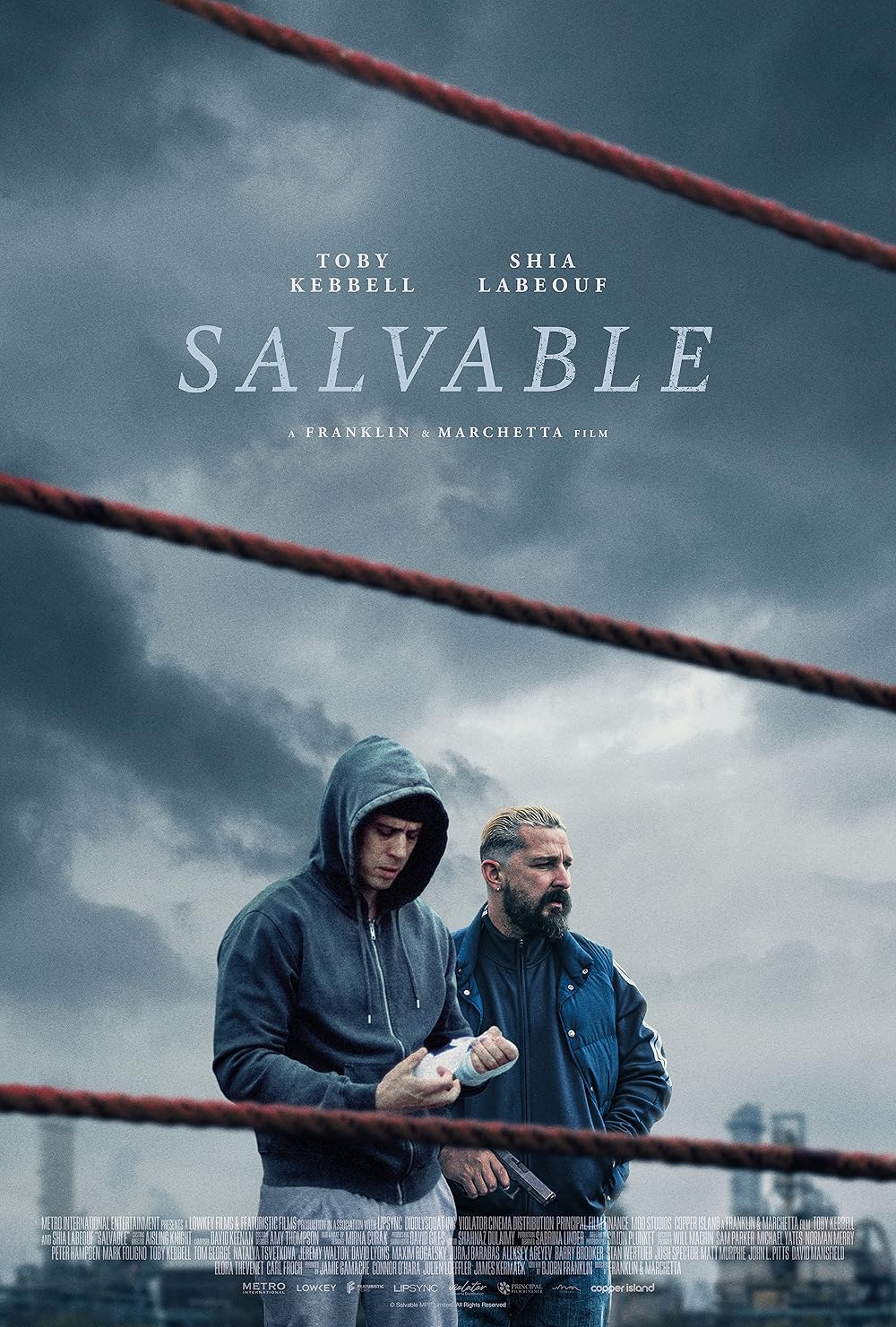Bjorn Franklin and Johnny Marchetta’s melancholy boxing drama “Salvable” hits many of the familiar sports movie beats but manages a few surprises through the dedicated performance of its star, Toby Kebbell. Sal (Kebbell) is a middle-aged boxer with diminishing prospects. He works a day job at a senior center, tries to connect with his distant teenage daughter Molly (Kila Lord Cassidy), and sweat out his frustrations at the local boxing gym in his corner of a depressed small town. When his old sparring buddy Vince (Shia LaBeouf) returns after a jail stint, Sal faces a tempting opportunity if he’ll risk everything else.
Written by Franklin, “Salvable” struggles to find its footing as both a family and crime drama, but it does one better than the other. The intense moments of unsanctioned fights and tough guy posturing detract from the complicated portrait of a man who cares about the elderly patients in his care, reconnecting with his stubborn teen daughter, and fighting to keep in the sport he’s known all his life. When compared side-by-side, the film’s crime elements pale in comparison to Sal’s personal struggles as the film better explores the guilt he feels over failing Molly, the frustrations he feels with his ex, and the feeling of failure looming over his once illustrious career. “Salvable” shies away from this introspective opportunity for some more action, which undoubtedly might sell a few more tickets, but it becomes a less focused film.
That’s not to say the two genres are incompatible, it’s just that the two halves of this coin called “Salvable” don’t align smoothly enough, making the personal drama feel melodramatic and the crime drama feel underwritten in comparison. How many people are clamoring to see LaBeouf attempt an Irish accent, I’m not sure, but it’s Kebbell’s performance that stands out in the film. His character is ground down but not out, mindful of the experiences age has given him, yet frustrated by all of life’s many roadblocks and trying to do his best–which these days, his best just isn’t enough, not for the ring, not for the job, and not for Molly. Kebbell shoulders these anxieties and anger like a heavy backpack, it slows him down but he persists, nonetheless.
To match the murky waters Sal navigates when Vince arrives, Franklin and Marchetta worked with cinematographer Simon Plunket to create a gloomy atmosphere from shades of blue, green, and grey. The scenery occasionally changes for Sal, but not often, heightening the sense that his world is a kind of prison. “Salvable” opens on a black-and-white dream of Sal fighting alone in a boxing ring a la “Raging Bull,” yet he somehow gets knocked out, perhaps a symbol of how his own worst enemy is himself. In the town, the sky always looks like it’s on the verge of opening up for rain, the fluorescent lights of the gym and senior care center look colder than usual, even daylight looks chilly instead of warm. David Keenan’s music also emphasizes the dramatic turns of this story, especially at the end, when the consequences of Sal’s actions finally catch up with him. The numerous broody shots of Sal walking angrily to sad folk songs slow the film’s pacing, but the music kicks back into high gear to match when Sal jumps into action.
While there is much trouble surrounding Sal, he is the most interesting part of the movie that bears his name. Despite the setbacks and disappointments, his heart has yet to turn to stone, he won’t fall into the depths that Vince has or give up on Molly so easily when her mother intrudes on his time with her. He spares a life at the expense of his well-being and looks after those who have lost the ability to do so. While “Salvable” doesn’t easily roll with the punches, Kebbell’s somber and tense performance gives the movie its heart. LaBeouf’s chaos agent Vince and the subplot he brings with him may veer the film a bit off course, but Sal’s tender scenes with Molly ground the film in something more than macho bravado and the familiar temptation of doing “one last job.” Life did not turn out the way Sal had planned–does it for any of us? In “Salvable,” not everything can be saved, but there is always the struggle to stay in the ring and keep fighting for what matters.




















